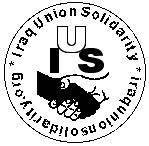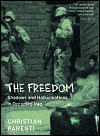Le Monde diplomatique ~~ May 2007
Iraq's women under pressure
The lives of many Iraqi women have become appreciably harsher following international sanctions and the US-led invasion. Although pleased to see Saddam toppled, some look back on the prosperity and social liberation of the Ba'athist years with nostalgia By Nadje Sadig Al-Ali.
Iraqi women sometimes remember that they have lived in a multi-ethnic,multicultural national entity with a prospering economy and rapid modernisation; at other times they recall repression, discrimination,declining living conditions and sectarian tensions.I have tried to document the diversity of experiences during themonarchy, the years after the revolution of 1958, the economic boom (and the expansion of the middle class) in the 1970s, the Iran-Iraq war from 1980-88, the first Gulf war of 1991 and the economicsanctions of 1990-2003.
Since the United States invasion many under-represented sections of society fail to acknowledge these experiences as different. I feeluneasy when people say "Iraqi women think…" or "Iraqi women want…"because how can that represent such a wide variety of views? The difference in perspectives is historically based and cannot simply be reduced to ethnicity and religion.The period after the first Ba'athist coup of 1963 is associated with increased political violence, greater sectarianism and a reversal ofprogressive laws and reforms. Yet many women remember relative social freedom and cultural vibrancy during the rule of the Arif brothers,1963-68, and the early Ba'ath period, 1968-78.
Many secular, apolitical middle-class Shia, Sunni, Kurdish andChristian women appreciated the achievements of the early Ba'ath period in education, modernisation of infrastructures and welfareprovisions. While those who actively opposed the regime rememberpolitical repression, mass arrests, torture and executions, even somewho had first hand experiences of the regime's repressive practices retrospectively appreciated its developmental policies.
Cosmopolitan Baghdad Women's memories show that an urban middle-class identity, especially the cosmopolitan Baghdadi identity, subsumed ethnic and religious differences even throughout sanctions. A middle-class Shia family inBaghdad had more in common with its Sunni Arab and Kurdishmiddle-class neighbours in mixed neighbourhoods than they did with theimpoverished Shia living in Madina al-Thawra (renamed Saddam city, now Sadr city) or with Shia in the south. Baghdadi families were oftenmulti-religious and multi-ethnic, and mixed marriages were commonamong the urban Baghdadi middle classes.Zeynab, a sympathiser of the Islamist Shia Da'wa party who now lives in Dearborn in the US, said: "We were all friends. We celebrated holidays together. When we had the [Shia] celebration in commemorationof Imam Husein, even Jews and Christians joined us. We never thoughtabout race or religion. Schools were open to everybody. In schools, we had Jewish, Christian, Sunni and Kurdish classmates. There were no badfeelings towards anyone.">From the late 1970s differences between secular and Islamist political positions started to matter more, influencing experiences of the regime. Members or sympathisers of the Da'wa party were targeted not so much for their religious affiliation but because of their opposition to the regime and their aim to establish an Islamic state.No one wants to diminish the suffering that members of the Shia Islamist opposition parties endured, but they were not the onlytargets of state repression; Kurds and others, including Sunni Arabs who actively resisted the regime, all suffered.The Shia Islamists' claim to having been singled out because of religious affiliation rather than political conviction contributes to the current atmosphere in which rights, privileges and power are linked to sectarian divisions and arguments over who suffered most.
Of course, specific atrocities committed by the previous regime should not be swept under the carpet for the sake of national unity. The trial of Saddam Hussein was a missed opportunity to initiate a credible truth and reconciliation process.Many Iraqi women gained socially and economically during the 1970s despite political repression. Living conditions improved for most ofthe population as the state relied not only on force and its power tocontrol, but also devised generous welfare programmes and opened opportunities for investment and capital accumulation that helped many in the expanding middle classes.
Yet, from the 1980s on, political repression, the Iran-Iraq war, thenthe first Gulf war and the militarisation of society began to affectwomen, through the loss of family and economic decline. Under sanctions there was a radical shift; women had less work or access toeducation, and health care and social services declined. Asunemployment worsened and infrastructure collapsed, women were pushedback to their homes. 'All this was cut'Sawsan, an Assyrian woman from the north, worked as a teacher in ahigh school until 1995. She said: "We did not feel it so much duringthe first years of sanctions, but by 1994 it really hit us. Social conditions had deteriorated. The currency had been devalued while salaries were fixed. Many women started to quit work. Some of my friends could not even afford transport to the school. Before sanctions, the school made sure that we were picked up by a bus, but all this was cut.
For me, the most important thing was my children. I did not want them to come home and be alone in the house. It becametoo unsafe. And I know from my own work that schools deterioratedbadly; teachers had to quit work and there was no money for anything. So I felt that I had to teach them at home."Since the 2003 invasion, survival is a priority as lack of security isaccompanied by difficult living conditions. The infrastructure hasfurther deteriorated; lack of electricity, clean water, sanitation and a proper health system are part of everyday life. Intisar, who is adoctor in a teaching hospital in Baghdad, says: "We only haveelectricity for three to five hours a day. There isn't enough cleandrinking water. Lack of sanitation is a big problem, one of the main causes of malnutrition, dysentery and death among young children."
According to recent reports published by Unicef and the British-basedcharity Medact, the occupation has led to a deterioration in health,malnutrition, a rise in vaccine-preventable diseases and increasingmortality rates for children under five (from 5% in 1990 to 12.5% in 2004 according to Unicef). As during the sanctions, women suffer often the last to eat after feeding children and husbands. They have to stand and watch while their sick, malnourished children fail to getthe care they need.Even so, women have been trying to improve conditions. Locally-basedwomen's initiatives and groups flourish, answering practical needs related to poverty and the lack of health care, housing and socialservices. Women have pooled resources to address the need foreducation and training (such as computer classes) as well as income generation. Many initiatives filling the gap in state welfare and health are associated with political and religious bodies, butindependent, non-partisan professional women have also mobilised.Leila, a woman's rights activists still living in Iraq, said:'Initially many of us were very hopeful. We did not like foreign soldiers on our streets, but we were happy Saddam was gone. Once thegeneral chaos and the looting settled down a bit, women were the firstto get organised. Women doctors and lawyers started to offer freeservices to women. We started to discuss political issues and tried to lobby the American and British forces. But the Americans sent peopleto Iraq whose attitude was: 'We don't deal with women.' [Presidentialenvoy Paul] Bremer was one. Iraqi women managed to get a woman's quota despite the Americans who opposed it.
Their idea of women's issues wasto organise big meetings and conferences and build modern women's centres. Do you think anyone went to visit these centres?"Threats to women Although bombings of residential areas caused many deaths, Iraqis havealso been shot by US or British troops. Whole families have beenkilled approaching a checkpoint or through failing to recogniseprohibited areas. There are many documented accounts of physical assaults on women at checkpoints and during house searches.
Several women I talked to said they had been verbally or physicallythreatened, and assaulted by soldiers as they were searched at checkpoints. US forces have also arrested wives, sisters and daughters of suspected insurgents to pressure them to surrender (1); in effect taken hostage by US forces and used as bargaining chips. Such arrests cause a sense of shame associated with detention. There is mountingevidence of torture and rape; women identified become potential victims of honour crimes.Women's organisations have also documented Islamist violence to women,including acid thrown into faces, even targeted killings. In 2003 manywomen in Basra reported that they were forced to wear a headscarf or restrict their movements because men began to harass or shout at them.Women of all ages are now forced to comply with dress codes and becareful when they go out. Suad, a former accountant and mother offour, lives in a neighbourhood of Baghdad that used to be mixed beforesectarian killings in 2005 and 2006. She told me: "I resisted for along time, but last year I started wearing the hijab, after I was threatened by several Islamist militants in front of my house. They are terrorising the whole neighbourhood, behaving as if they were incharge. And they are actually controlling the area. No one dares to challenge them. A few months ago they distributed leaflets around thearea warning people to obey them and demanding that women should stay at home."
The threat of Islamist militias now goes beyond dress codes and callsfor gender segregation at university. Despite, indeed partly becauseof the US and British rhetoric about liberation and rights, women have been pushed into the background and into their homes. Women with apublic profile (doctors, academics, lawyers, NGO activists,politicians) are threatened and targeted for assassination. There arealso criminal gangs who worsen the climate of fear by kidnapping women for ransom, sexual abuse or sale into prostitution outside Iraq.It isn't a surprise that many of the women I interviewed remember thepast nostalgically.Original text in English* Nadje Sadig Al-Ali is senior lecturer in social anthropology at the Institute of Arab & Islamic Studies, University of Exeter and authorof Gender, Secularism & the State in the Middle East: The EgyptianWomen's Movements (Cambridge University Press, 2000). Her latest book is Iraqi Women: Untold Stories from 1948 to the Present (Zed Books,March 2007).(1) Those suspected of being involved in both the resistance as wellas in terrorist activities are regularly detained without informing their families about their whereabouts and their well being.Disappearances, random arrests, torture and abuse in prisons are common phenomena in post-Saddam Iraq
Subscribe to:
Post Comments (Atom)







No comments:
Post a Comment